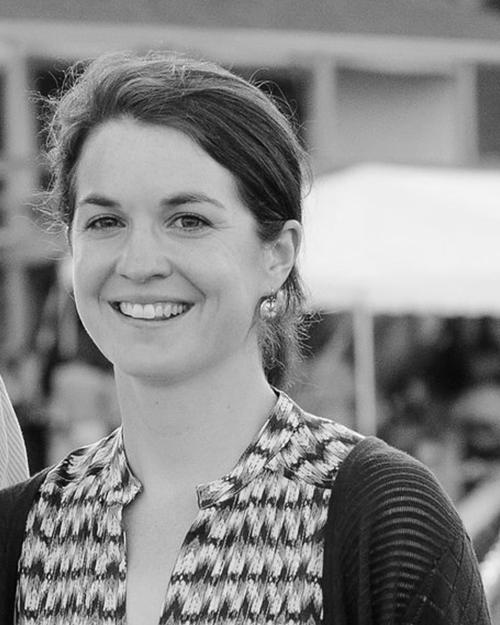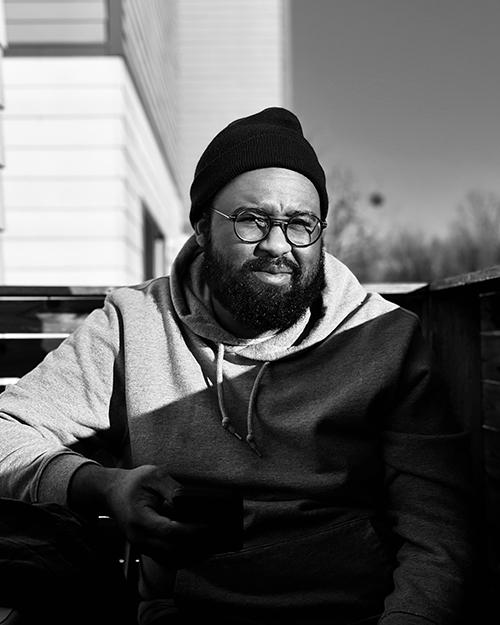Faculty Focus: Fall 2023
Douglas Gollin is the new Jason and Chloe Epstein Professor of Energy Justice in the Department of Economics; Rebecca Jackson is a new Assistant Professor in the Department of Earth and Climate Sciences; and Zora J Murff is a new Professor of the Practice at the School of the Museum of Fine Arts at Tufts.

A Late Convert to Economics
As an undergraduate student at Harvard University, Douglas Gollin took no economics courses. The future economics professor was much more interested in history and literature, his interdisciplinary major.
"All the people I knew who were studying economics were planning to go into business and finance, and I wasn't particularly interested in that," he says.
Two courses that Gollin took senior year nudged him in the direction of economics. One concerned the implementation of social policy. The other looked at the social and economic history of medieval Europe, including the impact of the Black Death pandemic on agricultural livelihoods.
These historical connections between agriculture and the broader economy resonated when, after graduation, Gollin landed a job as a journalist for the daily newspaper in Omaha, Nebraska. He was soon assigned to the agriculture beat. In researching stories, he frequently found himself calling agricultural economists at the University of Nebraska and Iowa State University.
"At some point, it occurred to me that I'd rather be the person on the other end of the phone call—the person who sounded like they knew something," he says.
Gollin went on to earn a master's degree in international relations at Yale University. That's where he took his first economics course, on the economics of agriculture. It's also where he met the woman who would become his wife, Cheryl Doss.
The couple later completed doctorate degrees at the University of Minnesota (Gollin in economics, Doss in applied economics). They spent the last seven years as colleagues in the Oxford University Department of International Development. This fall, they will both join the Tufts Department of Economics.
"It took me a long time to end up in economics, and I think that sparked my interest in teaching economics to non-economists," Gollin says. "I see economics as a set of tools to help you think about a much broader range of issues and topics. That's why a liberal arts institution like Tufts is a great fit for me."
Gollin’s current research focuses on developing economies, primarily in Africa, and on the structural changes that these economies are undergoing with a particular emphasis on agriculture and rural communities. He also has interests in food systems, and especially in the economics of genetic resource conservation for agriculture. Gollin will teach a macroeconomics course in spring 2024.

At Home on the Water
Rebecca Jackson's field work takes her to some interesting places, to say the least. As a physical oceanographer studying ocean-glacier interactions, coastal dynamics, and polar processes, she has frequented the ocean waters off the coasts of Greenland and Alaska many times.
For her research, Jackson generally spends time in remote coastal settings that can only be navigated in small local fishing boats or tugboats. From these small boats, she and her team deploy autonomous vessels to collect measurements even closer to glaciers than people can safely go.
"We focus on getting observations of the ocean right in front of the glacier and work with glaciologists to link what's happening in the ocean with its impact on the glacier" Jackson says.
Ocean-glacier interactions is a relatively new field of study with growing relevance in the age of climate change. For example, Jackson's research is informing estimates of how much glaciers and ice sheets will contribute to sea-level rise in the future.
"There are two directions I think about," she says. "One is the impact of the ocean on the glaciers: How does ocean warming drive glacier retreat? The other is the impact of the glaciers on the ocean: How does all this increased meltwater from glaciers affect ocean circulation and, ultimately, the movement of heat around the climate system?"
Jackson, most recently an assistant professor in the Rutgers University Department of Marine and Coastal Sciences, grew up in Greater Boston and completed her doctorate in physical oceanography at MIT in a joint program with Woods Hole Oceanographic Institution. She is looking forward to returning to the area and continuing her career at Tufts.
"With the expansion of the Earth and Climate Sciences Department and the addition of a climate sciences major, it's an exciting time to be here," Jackson says. "I'm excited to help build that new program and to be at a university where so much energy and focus is going into developing new climate-related initiatives."
This fall, Jackson will teach "Introduction to Oceanography" and work on developing new courses in ocean/atmosphere physics and polar processes.

An Artist and Educator
Many years later, Zora J Murff can still vividly recall the day he truly fell in love with photography. It centered around a visit to the Des Moines Art Center, a modern and contemporary art museum in the Iowa city where he grew up. He found himself transfixed by a portrait the photographer Sally Mann had done of her children.
"I had a transcendental experience while looking at it," Murff says. "That was early on in my exploration of using a camera and figuring out how to make art with it. Seeing that photograph showed me that I can make art for other people to have relational experiences."
Murff, who was working in the social services field at the time, subsequently earned a master of fine arts degree in studio art from the University of Nebraska–Lincoln. He credits several of his professors with showing an interest in his practice while also serving as role models.
"I was trying to figure out how artistic practice fit into my life, and I also wanted to be an educator," he says. "They inspired me. They showed that being an artist can happen in the classroom through teaching others skills in self-expression."
Murff uses photography along with collages, assemblages, and other art mediums to speak plainly against the complicated social dynamics and many ills stemming from American racialization. His photography has been published in the likes of The New York Times, The New Yorker, and The Atlantic.
This fall, Murff will teach "Evidence" at SMFA. He comes to Tufts from the University of Arkansas School of Art, where he taught photography for five years.
"I felt like my ideas would be supported at Tufts," he says. "And there are really great faculty at SMFA, especially in photography. My new colleagues are people I follow and know well, and I'm excited to contribute to the culture they've helped create."
